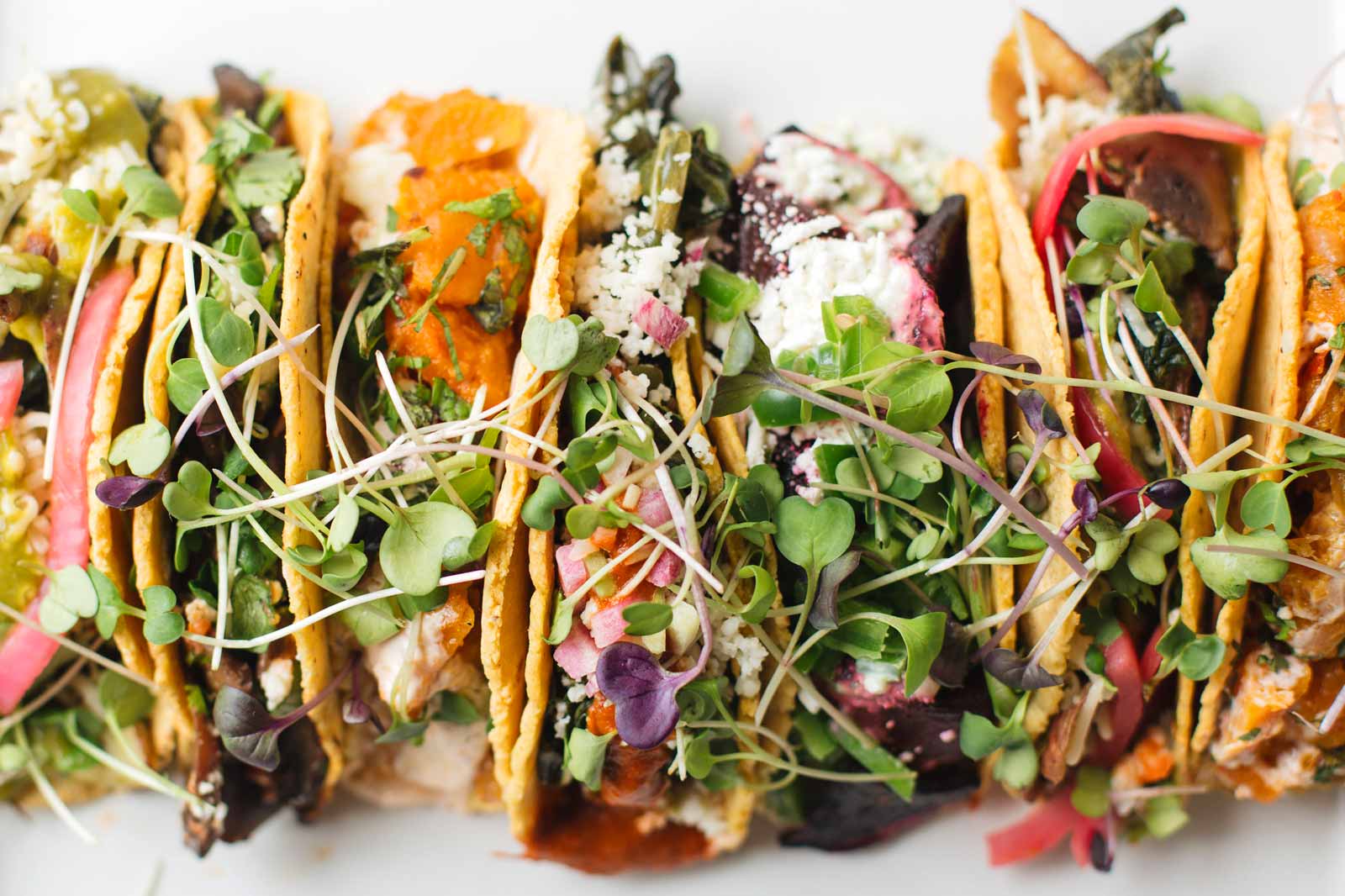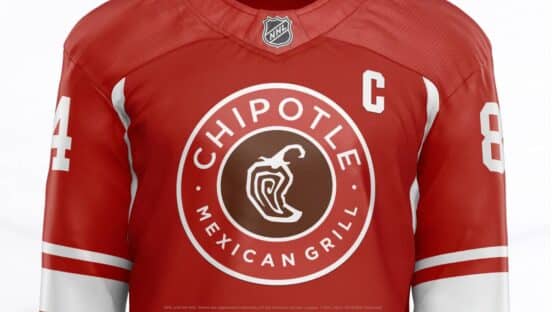The limited-service restaurant industry is known for its fast-paced evolution and fads that come and go. Some trends, though, have lasting power, and none represent a sea change quite like the shift toward plant-forward eating, which has evolved from a fringe category to an industry craze shaping the future of foodservice.
The movement carries a sense of urgency, as the world faces a triple threat of increased food scarcity, nutrition-based health epidemics, and environmental degradation. A recent report by the EAT-Lancet Commission puts forth a plan to address all three of these issues and sustainably feed an estimated global population of 10 billion by 2050. While the approach is multifaceted, it all begins with food, namely a shift to diets and production rooted in vegetables, fruits, whole grains, and plant proteins.
READ MORE: Go around the plant-forward world in eight eateries.
Through educational resources and thought leadership, The Culinary Institute of America (CIA) is helping to define the plant-forward movement for the restaurant industry; its events, including the Global Plant-Forward Culinary Summit (May 1–3 in Napa, California) and Menus of Change (June 18–20 in Hyde Park, New York) provide a framework upon which the industry can build a more plant-friendly future. And QSR is thrilled to partner with the CIA in that endeavor, particularly as it relates to the fast-casual industry. After all, fast casual is the perfect meeting point of culinary innovation and scalable operations, and it has the power to bring plant-forward meals to the masses.
In this first-ever QSR-CIA Plant-Forward Fast Casual Watch List, we set out to curate a catalog of fast-casual players that are blossoming alongside the plant-forward movement. Some are exclusively vegan, while others include animal products on their menus. A few specialize in fusion bowls, and others re-imagine fast-food classics. What they all do, no matter their size, home base, or cuisine, is make plants the stars of their menus, not just relegating them to a supporting role.
We think these brands have the potential to redefine plant-forward eating for the future. After all, the plant-forward movement may have sprouted from a seed into a sapling, but it’s still got a long way to grow.
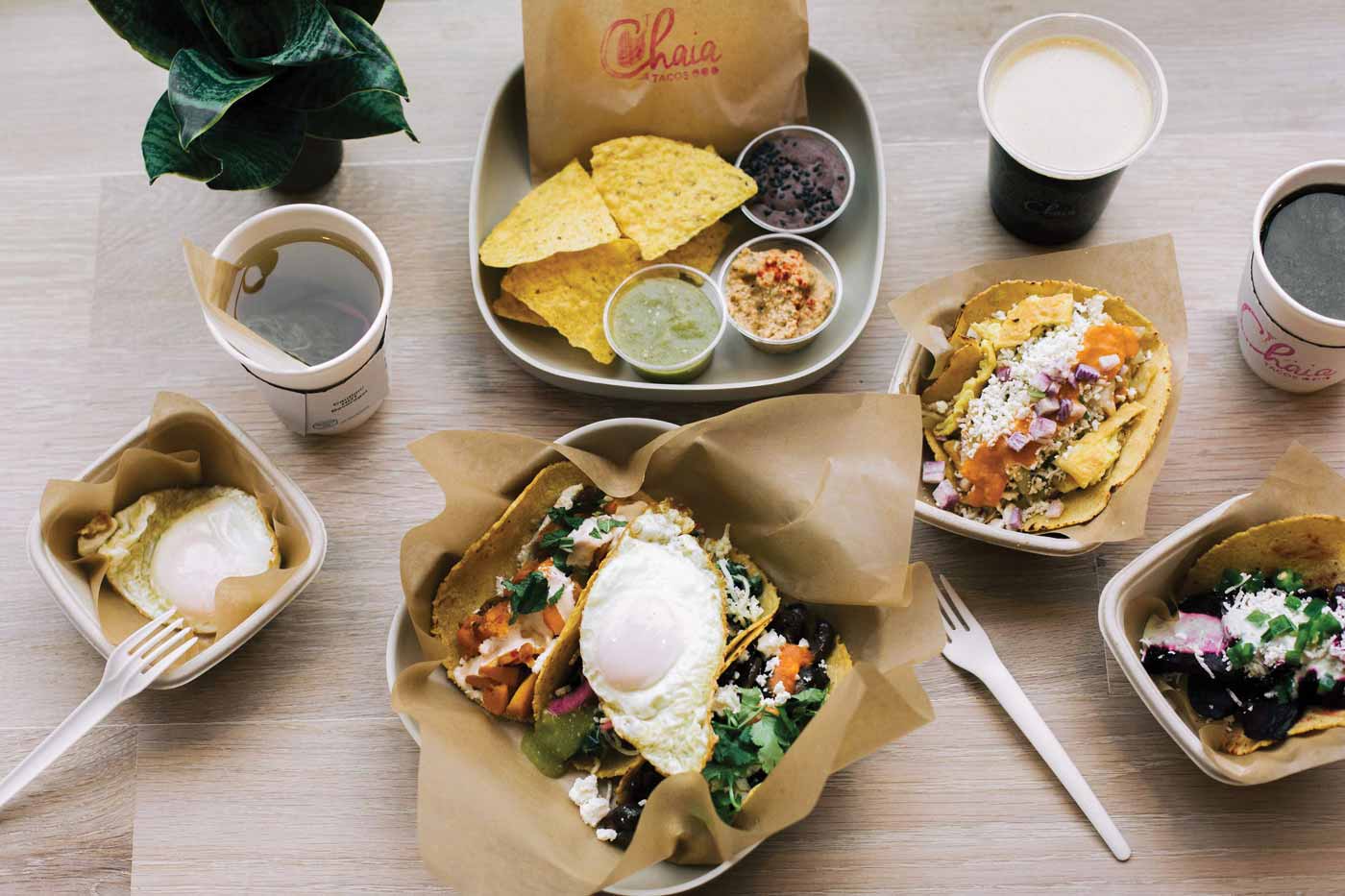
With the possible exception of burgers, few categories are as beloved in the fast-casual space as tacos. The versatile carrier has moved far beyond its Mexican roots to cradle everything from Korean bulgogi to chicken tikka masala. But despite this outpouring of innovation and affection, tacos have remained largely a carnivore’s delight.
That’s not the case at Chaia Tacos, where the tacos are the proverbial meat of the menu; all dishes are vegetarian, and all but one item—the Creamy Kale and Potato taco—can be made vegan. The restaurant is also entirely nut-free, and the only gluten-containing item is the craft beer on tap.
“All of those [attributes] make it easy to come if you have dietary restrictions, but we don’t think of ourselves as a dietary-restriction place. We just hit those modes,” says Bettina Stern, who cofounded the concept with Suzanne Simon in 2015. “We’re making it easier to have those yummy, delicious, healthier, more sustainable menu items at the ready. … They are the most luxurious item on the plate.”
At a glance, Chaia’s menu could be easily mistaken for that of a more upscale, sit-down establishment. Seasonal, locally sourced vegetables reveal their diverse nature, whether hearty in tacos like the Braised Mushroom, or refreshing as in the Citrus-Roasted Beets taco or the Sautéed Green Cabbage taco with watermelon relish. Aside from tacos, the menu includes a Roasted Celery Root Tlayuda entrée (black beans, feta, pickled apple, and pipián atop a duo of crisped tostados) and a Carrot Kohlrabi Slaw with sweet and spicy vinaigrette, jalapeño, and fresh herbs.
Given such enticing options, it’s no wonder that omnivores comprise a solid 80 percent of Chaia’s patronage, by Stern’s estimation. That widespread popularity proves the brand need not proselytize the inherent virtue of veggies to win a loyal following—something that Stern and Simon, both working mothers, can appreciate. “We’re just putting vegetables on your plate. We’re making them really delicious and hoping that they’ll convert those veggie-scared people who don’t know how to cook vegetables at their yummiest,” Stern says. “But we’re definitely not trying to tell you what to do.”
The two spent years serving veggie tacos at a D.C.-area farmers market before opening their first brick-and-mortar Chaia in Georgetown. This January, store No. 2 made its debut in a space about twice the size of the original; Stern hopes the bright atmosphere and extra room encourage guests to linger.
The second location also marks a significant upgrade in Chaia’s beverage program. While craft beer and wine were mainstays at the original, the new spot serves a signature margarita, as well as an Apple Shrub Toddy and Ruby Paloma (mezcal, grapefruit, lime, and ginger agave).
Up next, Chaia has locked down a deal for a kiosk in an upcoming food hall right in the heart of D.C. —a throwback of sorts to its early days at the farmers market.
Stern would like to take the brand nationwide but is still wrestling with what that expansion plan would look like. The founders have taken an especially careful approach to their business, leading Stern to question whether it could ever work in a franchise model.
Nevertheless, she sees potential for a concept like Chaia even in a market as pricey as New York City or one as saturated in vegetarian fare as California.
“I think our concept would go over really well there, because you’ve already got people who are eating a plant-forward diet. … The only concern about going to California—the veggie-and-fruit basket of the country—is that there is definitely more competition,” Stern says. “But I don’t believe there is anybody doing what we are doing.”
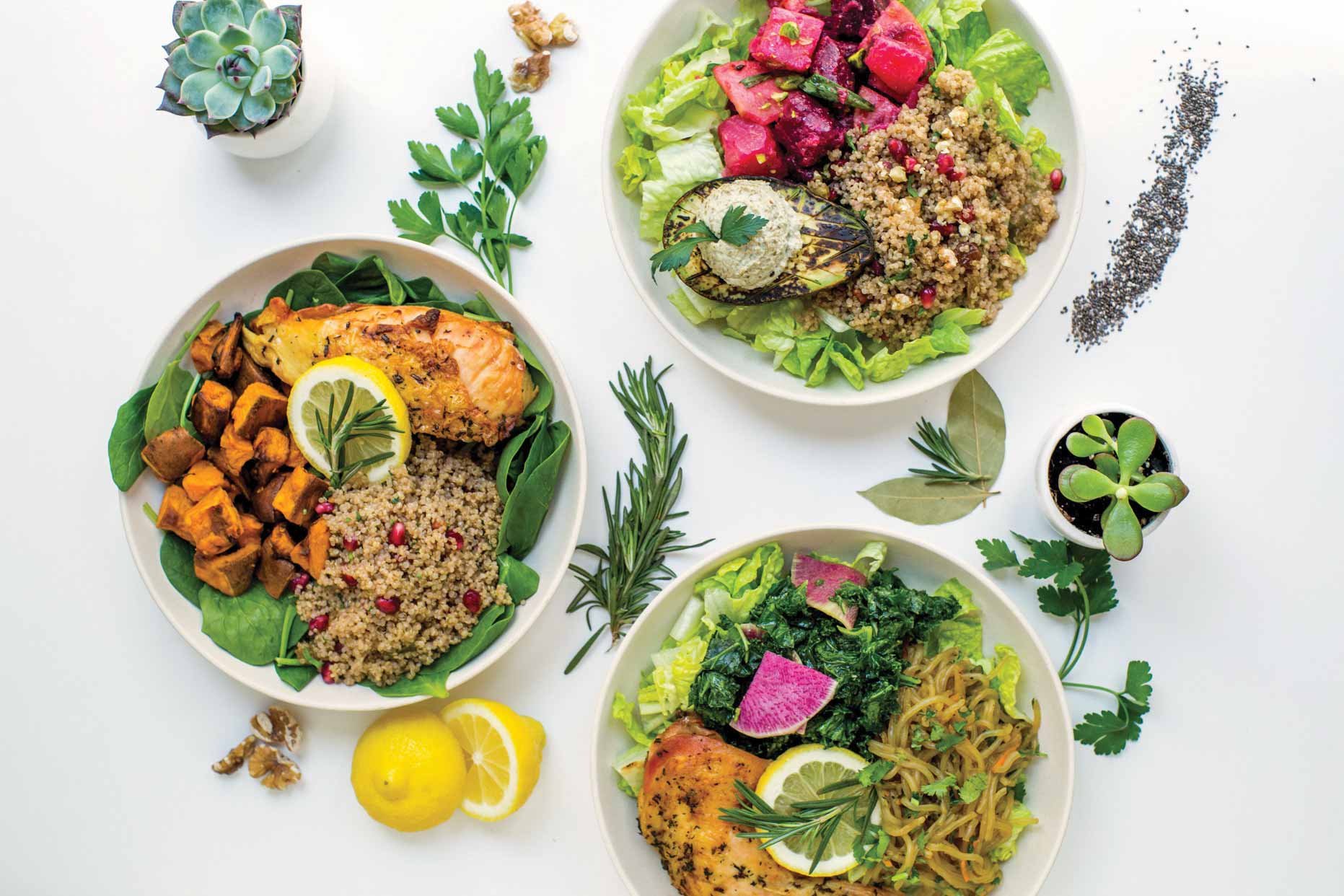
The plant-forward scene is alive and well in the Big Apple thanks to innovative concepts like Mulberry & Vine, which welcomes consumers of all diet stripes. The veg-heavy plates and bowls are packed with veggies dressed in global flavors, from lemony Shaved Brussels with fennel and dates to Sesame Scallion Tofu and Miso-Maple Acorn Squash.
This New York City–based concept used recipes from chef and cofounder Franklin Becker as a jumping-off point for its menu of gluten- (and “guiltin”-) free fare. The vegetarian and vegan options are a step above the competition; think BBQ Jackfruit, Sesame Avocado with yuzu vinaigrette, spirulina-studded rice, and turmeric almonds.
While Salata’s build-your-own menu includes chicken, seafood, and cheese, the vast majority is plant-based, with a wide variety of veggies, lettuces, fruits, nuts, and alternative proteins. Already this year the brand has debuted a new store prototype and hired its first-ever development officer, signaling more growth ahead.
Flower Child entered the dining scene in 2014 with some serious firepower. Not only is it under the auspices of acclaimed restaurateur Sam Fox, but it also benefited from the culinary blueprint of former sister brand, True Food Kitchen. In that same spirit, the fast casual’s menu follows the anti-inflammatory food pyramid, which emphasizes vegetables, legumes, and whole grains over animal products.
[float_image image=”https://www.qsrmagazine.com/wp-content/uploads/2019/04/cafe-yum.jpg” width=”40″ link=”” caption=”Mark and Mary Ann Beauchamp were well ahead of the plant-forward eating curve, having opened Cafe Yumm! in the 1990s.” alt=”Cafe Yumm” align=”left” /]
If a customer asks whether Café Yumm! serves animal proteins, the answer may very well be, “No, ma’am.’” Or at least that’s the pun cofounder Mark Beauchamp will answer with, “ma’am” in this case being short for “mammals.” The Pacific Northwest chain does have poultry on the menu, but it’s hardly the focus. Instead, Café Yumm! puts veggies front and center, starting with its signature bowls. A hearty base of rice and beans is bolstered by global flavors—mostly of the pan-Asian persuasion—and guests have the option to build their own from the ground up. Wraps, sandwiches, bento boxes, soups, and salads round out the menu. As Beauchamp points out, dishes like the Turkey Reuben and Cheese Quesadilla serve as reassuring touch points for those less familiar with plant-forward dining or the bowl format.
“Some first-time guests are relieved to see a sandwich on our menu. By the second or third visit, they’ll try a Yumm! Bowl [or] something more uniquely Café Yumm!,” Beauchamp says.
For him and wife/cofounder Mary Ann, the menu harkens back to ancient culinary traditions found the world over.
“Tofu and tempeh are nourishing, traditional staples in many cultures, even if they sound like they came from 1960s Berkeley,” Beauchamp says, adding that rice is a staple in nearly every culture. “Plant-based [eating] has been around for a while, but it wasn’t called that. You were vegetarian or you weren’t.”
Even in bringing back a very old style of eating, the Beauchamps were well ahead of the plant-forward craze. Prior to Café Yumm!, the pair had opened another restaurant, Wild Rose, where Mary Ann regularly changed the menu, experimenting with different dishes and flavors from her eclectic culinary roots (she was born in Japan, grew up partially in Italy, and worked under chefs of various nationalities).
In 1997, the Beauchamps transitioned the business to Café Yumm to infuse it with a bit more consistency. Since then, it’s grown to 20-plus locations between Oregon and Washington. Last fall, Boise, Idaho, welcomed its first Café Yumm! store, with more to follow as part of a multi-unit deal.
Broadening consumer tastes could certainly bolster future growth, plus the Beauchamps have another ace up their sleeve. The company’s signature Yumm! Sauce is available in 160 grocery stores across the West Coast, and the company also fulfills mail orders for fans in all 50 states. The insights gleaned from the CPG side of the business may prove invaluable in deciding where to next plant a flag.
This cluster strategy, Beauchamp points out, is also how Howard Schultz jumpstarted Starbucks’ path to omnipresence back when it was a petite company shipping small-batch coffee across the country.
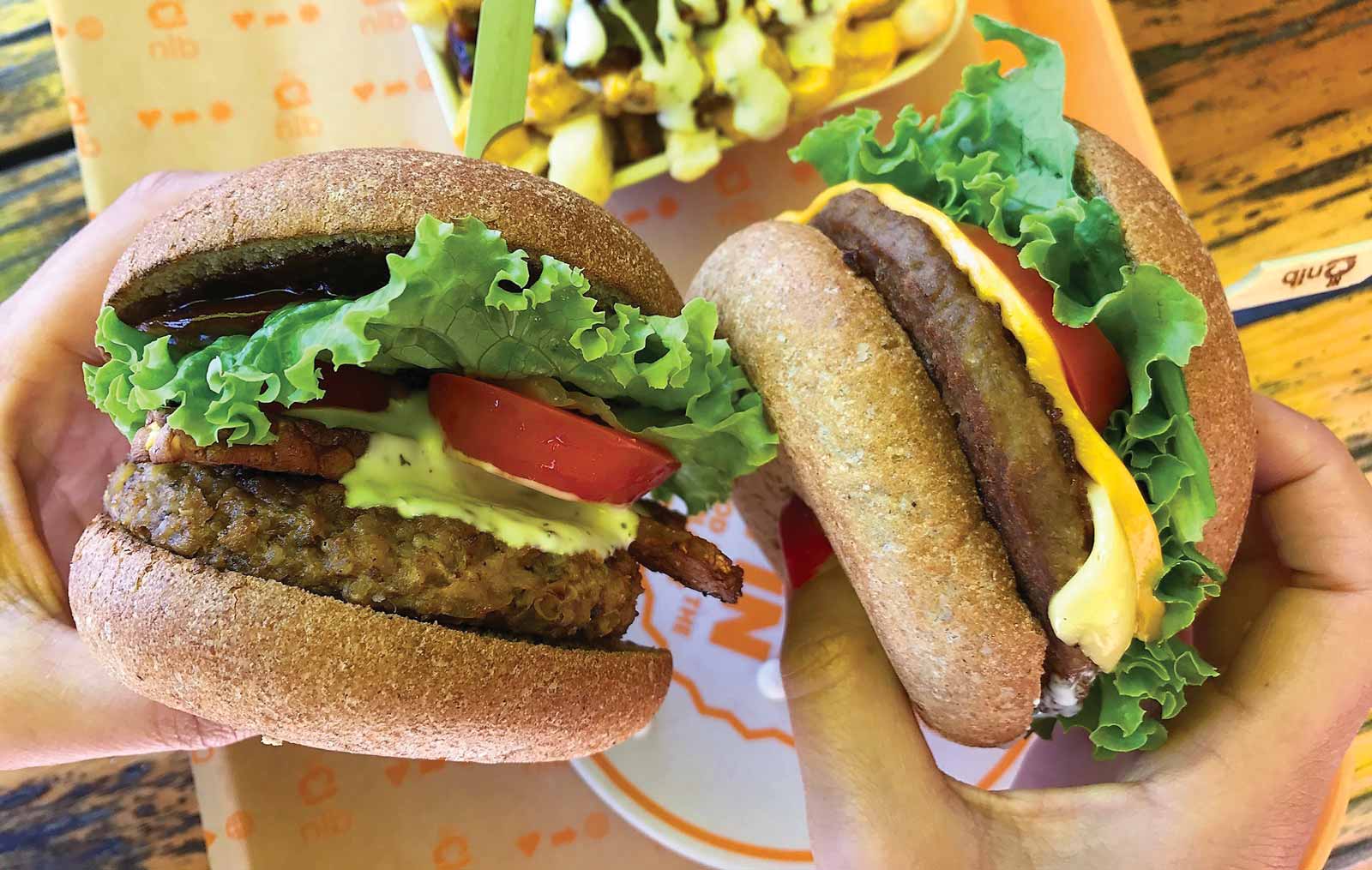
The husband-and-wife duo behind “America’s first 100 percent plant-based burger joint” has designs to take it to the, um, next level with 1,000 locations nationwide. Even more impressive than the brand’s vegan take on burger classics is the range of options: a dozen different burgers and milkshakes; seven styles of fries; four hot dogs; and three salads.
This founding member of the fast-casual movement may have built its reputation on traditional bakery and café fare, but in recent years Panera has demonstrated that even a wide-scale chain can pivot further toward plants. Its selection of broth bowls includes three vegan varieties utilizing proteins like edamame, quinoa, and soba noodles, as well as greens and vegetables.
Nearly 30 years after Amy’s Kitchen debuted its microwaveable meals, the company spun out a proprietary drive-thru concept. Amy’s slings vegetarian versions of drive-thru staples like burgers, pizza, and burritos, as well as mac ’n’ cheese, salads, and soups. Its second location is expected to open in July.
This growing franchise hails from our neighbor to the north but has ambitious plans for U.S. expansion, beginning with New York City. The versatile menu most closely resembles a classic fast casual like Panera Bread, with a selection of sandwiches, soups, bowls, breakfast fare, coffee, smoothies, and more—but all of it is plant-based.
It’s not a stretch to say that the build-your-own better-salad category can be traced back to this D.C.-born, now-California-based concept. A dozen years in, Sweetgreen continues to push the envelope with tech and its selection of seasonal, sustainably sourced ingredients. Acclaimed chef Dan Barber even helped them serve a rare variety of squash last fall.
This Midwest micro-chain proves the demand for global cuisines—especially those with a vegetarian slant—has expanded beyond coastal metropolises. Founded in Pittsburgh, Choolaah allows guests to customize their Indian bowls with paneer, veggie croquette, tofu, and roasted veggies.
[float_image image=”https://www.qsrmagazine.com/wp-content/uploads/2019/04/chopt-creative-salad-co-teams-lady-gaga-s-born-way-foundation.jpg” width=”30″ link=”” caption=”” alt=”Chopt” align=”right” /]
Amid the glut of fast-casual stars, Chopt distinguishes itself with a rotating selection of Destination Salads to highlight various global flavors. While a fair number of its signature dishes do include animal proteins, guests have the option to customize or build their own from the bottom up, with a slew of veggies and plant proteins like chickpeas, falafel, and tofu.
CAVA synthesizes the build-your-own-bowl model with Mediterranean flavors—and to great fanfare. The brand is planting flags across the country while driving a side CPG business of its proprietary dips and spreads, all of which are vegetarian. At the restaurants, hummus, tzatziki, falafel, and sriracha Greek yogurt help satiate herbivores.
The burgeoning West Coast brand marries deli classics to vegan sensibilities as seamlessly as it does a quick-service restaurant to grab-and-go bodega model. Beyond an assortment of panini, salads, and Notorious Badass Breakfast Sandwiches, Locali also whips up chia bowls, frozen yogurt, and “beauty smoothies.”
[float_image image=”https://www.qsrmagazine.com/wp-content/uploads/2019/04/Plant-Cafe.jpg” width=”30″ link=”” caption=”” alt=”The Plant Café Organic” align=”left” /]
California produce meets Asian flavor at this organic-only micro-chain. Eschewing the ubiquitous build-your-own format, the Plant Cafe Organic instead opts for a wide selection of signature dishes, hitting various dayparts and proving once and for all that plant-forward dining goes beyond lunch salads.
This franchise, founded by two concerned moms, has grown into suburbs across the country. Its mission? To make healthier eating more accessible for families and middle-class consumers. Chock full of veggies, the selection at Grabbagreen is rooted in bowls and wraps but also includes soups, smoothies, elixirs, and a kids menu, to boot.
Veganism has always been a lifestyle choice, but by CHLOE manages to turn it into a lifestyle aspiration. The veg-only restaurant applies poppy design elements to its restaurants, menus, and social media accounts. To that end, the brand is targeting trendy neighborhoods in big cities like New York, Philadelphia, and Los Angeles.
[float_image image=”https://www.qsrmagazine.com/wp-content/uploads/2019/04/live-alive.jpg” width=”30″ link=”” caption=”” alt=”Life Alive” align=”right” /]
Under the direction of chef Leah Dubois, Life Alive showcases “therapeutic” veg-forward foods in bowls, salads, and wraps. The beverage selection is equally extensive, with functional smoothies, juices, shots, and even lattes from house-made coconut crème. Although Life Alive has yet to expand beyond the Boston area, it has managed to attract the attention—and investment—from Panera Bread founder Ron Shaich.
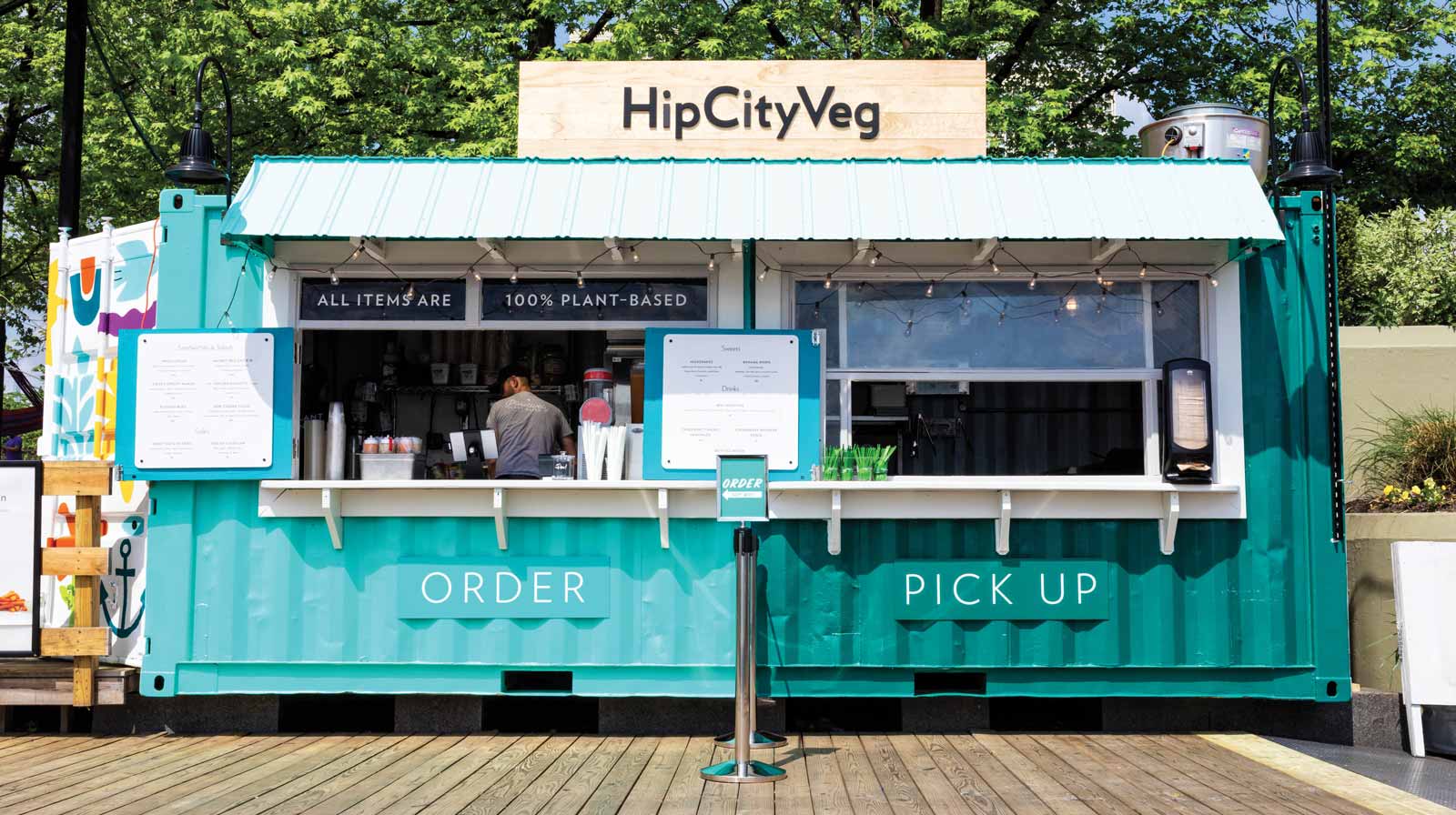
Nicole Marquis is on a mission to build a more sustainable foodservice future, but don’t expect her to promote HipCityVeg from that perspective. Instead, the all-vegan restaurant ensnares customers with a menu that yokes plant-forward dining to fast-food classics.
“I want to show people that they can have their favorite foods without any animal products, be totally satisfied, and have it all come from plants,” Marquis says.
HipCityVeg’s selection of salads obviously falls on the more healthful side of the spectrum, but even indulgences like burgers, sandwiches, shakes, and fries have an inherent health halo when compared to animal-based counterparts.
While many plant-focused fast casuals have jumped on the veggie-burger bandwagon, HipCityVeg differentiates itself from the competition through its expansive Chick’n section. The micro-chain sources soy-based Gardein products and then uses its own proprietary seasonings to blacken the meat alternative for its Chipotle Fajita, grill it for the Disco Chick’n, or fry it for the Lil’ Golden Nugs (the last of which is a fun throwback to Marquis’ childhood; she grew up loving fast-food chicken tenders).
And despite some initial customer confusion over what exactly Chick’n is (actual chicken? Chicken alternative?), the Crispy HipCity Ranch is a best-seller. The other two top performers are the BFG Smoothie and the sweet potato fries.
But the success of this menu category comes at a price—and a hefty one at that. “It’s a premium product that’s expensive to source,” Marquis says. “It’s not like chicken or beef where you have so many options and can benefit from economies of scale.”
Expansion for HipCityVeg could help offset those costs in the future. The company has grown to four Philadelphia locations since it first opened in 2012. It made its D.C. debut four years later and has a second spot in the works for 2019. This year also marks the urban-chic brand’s first foray into the ’burbs, with deals in two bedroom communities on the outskirts of Philadelphia.
Marquis knows that moving forward, customer education will be vital to Hip-CityVeg’s success, especially in new markets where word of mouth will be nonexistent at the start. “We can’t rely on our home-turf advantage,” she says. Including photos of various menu items is one straightforward way the brand bridges the gap for first-time guests and those unfamiliar with vegan fare.
Still, the winds of change are blowing in Marquis’ favor, as more consumers come around to the idea of plant-forward foods.
“In 2012, a Google analytics poll showed ‘veganism’ had a negative connotation. Terms associated with vegan were things like trend, substitute, extreme, animal cruelty, or food restrictions,” Marquis says. “Today, it’s associated with more positive terminology like healthy, vegetable, lifestyle, and organic.”
By CEO Denyelle Bruno’s own admission, Tender Greens is on a mission to indelibly change consumer dining habits in a way that is better for both themselves and for the planet. The brand doesn’t shy away from animal proteins, but options like the Happy Vegan salad and falafel sandwich satisfy the plant crowd.
Limited service has no shortage of build-your-own Mexican players, but Tocaya has an edge on the competition, borrowing culinary inspiration from full-service sister, Toca Madera. To wit, veg proteins are elevated to a new level in the form of adobo tofu and vegan picadillo, while the selection of queso includes a vegan take on mozzarella and chipotle jack.
[float_image image=”https://www.qsrmagazine.com/wp-content/uploads/2019/04/clover.jpg” width=”30″ link=”” caption=”” alt=”Clover Food Lab” align=”left” /]
The care taken at each location of this Boston-area concept is palpable. Clover has a special story behind each shop (including two Whole Foods outposts) and updates the menus every day at each. The menu encompasses unique offerings such as vegan barbecue, a veggie mezze platter, and Moroccan Carrot Salad.
[float_image image=”https://www.qsrmagazine.com/wp-content/uploads/2019/04/Joe-Juice.jpg” width=”30″ link=”” caption=”” alt=”Joe & The Juice” align=”right” /]
This Danish brand brings a robust selection of juices—featuring unorthodox ingredients like butternut squash and elderflower—as well as breakfast-leaning fare, “Joegurts,” and wellness shots to the traditional coffeehouse paradigm. With nearly two dozen locations in New York City and even more in California, Joe & The Juice could follow in the footsteps of other ubiquitous European brands like Pret a Manger. And don’t miss its crispy, toasted Danish whole-wheat, panini-style sandwich bread.

When a James Beard Award–winning chef turns his attention to the fast-casual space—and the vegan category at that—it signals a sea change for the industry. Michael Solomonov of Zahav brings a streamlined menu of Israeli-inspired falafel, with classic Middle Eastern condiments like harissa and amba, as well as Tehina Shakes in flavors such as Turkish Coffee and Mint Chocolate.
One of the first fast casuals to stake a claim in plant-forward food, Veggie Grill is bringing its West Coast–winning fare eastward. The chain opened its first Chicago shop in early 2018 and has designs on Boston and New York before the year is out.
Inspired by his own dietary improvements, acclaimed chef José Andrés opened this build-your-own concept where vegetables are the stars of the show. Beefsteak’s expansion into college campuses and hospitals further drives home its commitment to the healthy life.
Founded in 2005, this Canadian franchise has aggressively worked its way south with hundreds of U.S. locations, as well as other international outposts. While not an exclusively plant-forward concept, Freshii’s build-your-own model packs in the greens and includes vegetarian and vegan options.
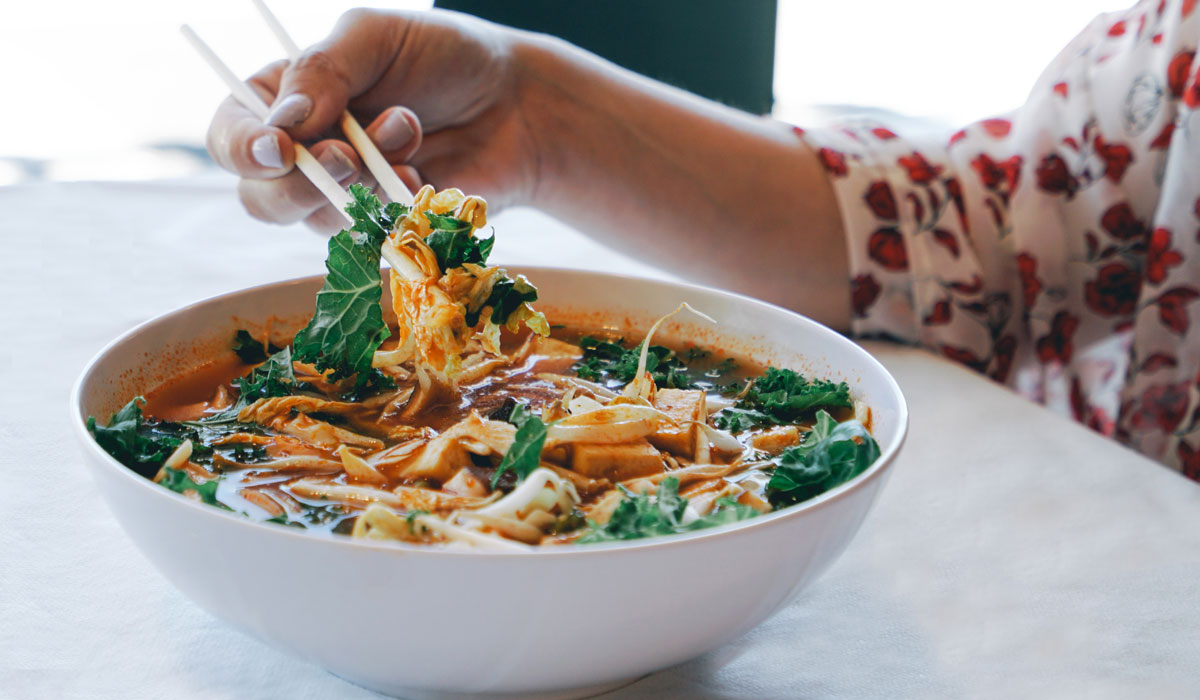
It may be a misnomer to call CoreLife Eatery the next-generation Panera Bread—for starters, the former has nary a bagel, muffin, or scone on its menu—but the two do share certain similarities. Both caught the coattails of bigger trends, bringing them from the big cities to smaller, oft-overlooked markets. For Panera that was bakery/café fare. For CoreLife Eatery, it’s veg-packed bowls that capitalize on the functional-foods movement.
“We do have some synergies with Panera, but whereas it has a broad fan base, we have loyal enthusiasts,” says CoreLife Eatery president Scott Davis.
He speaks from personal experience; Davis was on the ground level when Panera first started and spent nearly 30 years driving the brand forward in various roles, the most recent of which was chief concept and innovation officer. He joined the CoreLife Eatery team in 2016, just about a year after the initial store opened in Syracuse, New York. Since then, growth has skyrocketed to span more than 50 locations across 11 states.
The menu is vast, with two dozen signature bowls, as well as the option for guests to build their own entrées in either bowl or plate format. The ingredients aren’t strictly vegan or even vegetarian, for that matter; tuna, chicken, and steak are among the protein options, but so are roasted tofu, edamame, avocado, quinoa, and other satiating plant-based options. Although the Southwest Grilled Chicken and Purple Rice is the No. 1-selling item, the vegetarian Mediterranean green bowl with house-made falafel, hummus, shredded kale, tomatoes, and feta is among the top five performers.
This wide array of choices not only elevates CoreLife Eatery’s culinary profile, but it also eliminates veto votes. Customers of all stripes—from paleo and keto to vegan and vegetarian—can find options within their dietary restrictions.
“Instead of pushing any one style of eating, we emphasize overall healthfulness. We consider ourselves to be diet-agnostic,” Davis says. For example, the brand holds 21-day challenges wherein guests are encouraged to clean up their eating for three weeks by eliminating ingredients like added sugar, hydrogenated oils, and gluten. Over the course of the challenge, CoreLife Eatery emails participants nutrition information; one message may discuss the paleo lifestyle, while another delves into plant-forward eating. Ultimately, the brand provides the facts but then leaves it to customers to decide.
Consumer trust and community inroads have been vital in fueling growth and introducing new markets to CoreLife Eatery’s veg-filled offerings.
“Our goal is to build credibility with the wellness influencers in a community. Before we open a location in a new market, we have local marketers pay visits to the gyms, yoga studios, and other fitness brands to let them know what we offer and how committed we are to making a positive difference through our food,” Davis says. “After a new location is open, we will host events at the eatery like yoga classes. For us, it’s a way to extend the brand beyond the four walls and beyond what a fast casual can be.”
Vegan sushi is a thing now thanks to Beyond Sushi, which founder Guy Vaknin now plans to expand to the West Coast (along with a hybrid service model that includes some table-service locations). In October, the radical concept proved its mettle on an episode of “Shark Tank,” walking away with a $1.5 million investment.
[float_image image=”https://www.qsrmagazine.com/wp-content/uploads/2019/04/Whole-Heart.jpg” width=”30″ link=”” caption=”” alt=”Whole Heart Provisions” align=”left” /]
Chef Rebecca Arnold teamed up with James DiSabatino, founder of food truck/fast casual Roxy’s Grilled Cheese, to create Whole Heart Provisions. Similar to Beefsteak, this Boston-born fast casual puts the veggies front and center with global flair.

